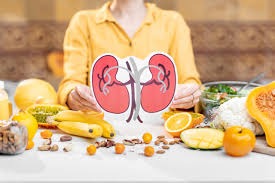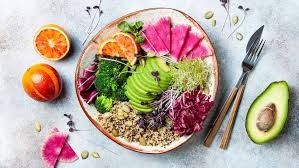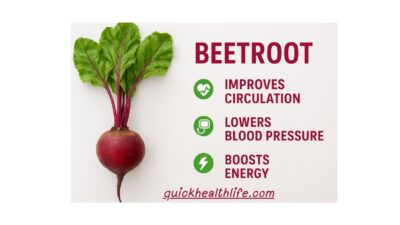Kidneys are the body’s unsung heroes. These bean-shaped organs filter waste, balance fluids, regulate blood pressure, and support the health of bones and red blood cells. Yet, they are often overlooked until damage becomes apparent. A nephrologist, a specialist in kidney health, emphasizes the importance of dietary choices in preventing early kidney failure. The right foods can protect these vital organs, while the wrong ones can accelerate their decline.
Table of Contents
Four Kidney-Friendly Foods to Add to Your Cart
You don’t need exotic ingredients to make a difference. These four simple foods pack a powerful punch for your kidney health.
| Food | Why It’s Great for Your Kidneys | How to Enjoy It |
|---|---|---|
| Blueberries | Bursting with antioxidants that protect your kidney cells from daily wear and tear. They’re also low in sodium and phosphorus, which is ideal for kidney health. | Toss them into your morning oatmeal, blend them into a smoothie, or just enjoy a handful as a fresh snack. |
| Leafy Greens (like Spinach & Kale) | Packed with magnesium, which helps regulate blood pressure—a key factor in keeping your kidneys safe from strain. | Sauté them with a little garlic for a tasty side dish, or add a handful to your soups and salads. |
| Fatty Fish (like Salmon) | Full of omega-3 fats, which are famous for fighting inflammation. This helps protect the blood vessels in your kidneys. | Keep it simple: bake or grill a fillet with some herbs for a delicious and healthy main course. |
| Garlic | Adds a huge boost of flavor without the need for salt, helping to keep your blood pressure in check. It also has natural anti-inflammatory properties. | Mince it into dressings, roast it to sweeten the flavor, or add it to almost any sav |
Complementary Foods for Kidney Health
While the four foods above form a strong foundation, nephrologists often recommend expanding the list to include other protective options. Patients frequently ask, what are the 10 best foods for kidney disease?
These typically include:
- Blueberries
- Leafy greens
- Fatty fish
- Garlic
- Apples
- Red bell peppers
- Cauliflower
- Cranberries
- Onions
- Olive oil
Each of these foods offers unique nutrients that lower inflammation, stabilize blood pressure, and promote detoxification.
Foods to Avoid for Kidney Protection
While protective foods strengthen kidney health, certain items should be eliminated or minimized. A nephrologist stresses the importance of recognizing bad food for kidney function, especially in patients already at risk.
Common Harmful Foods:
- Processed meats: Bacon, sausages, and deli cuts overload kidneys with sodium and phosphates.
- Excessive salt: High sodium raises blood pressure, straining kidneys.
- Sugary beverages: Sodas and sweetened juices can trigger diabetes and obesity.
- Fast food: Loaded with saturated fats and additives that damage kidney tissue.
Patients often ask about ten foods bad for kidneys. These include processed meats, salty snacks, canned soups, frozen pizzas, pickles, red meat in excess, fried foods, sugary drinks, high-sodium condiments, and refined carbs.
Those with elevated creatinine levels should pay attention to bad food for kidney creatinine, such as red meats, high-protein diets, and alcohol, which can increase waste buildup in the bloodstream.
Additionally, individuals recovering from infections should know about kidney infection foods to avoid, like caffeine, alcohol, spicy foods, and highly processed snacks that irritate the urinary tract.
Repairing and Protecting Kidneys with Food
It’s possible to strengthen and restore kidney function by carefully choosing nourishing foods. Research shows that certain ingredients support both kidney and liver function, reducing overall toxic burden. This leads to the question: what foods help repair kidneys and liver?
Protective Foods for Both Kidneys and Liver:
- Leafy greens for chlorophyll and antioxidants
- Turmeric for anti-inflammatory effects
- Beets for natural detoxification
- Apples and pears for fiber and cleansing properties
- Olive oil for healthy fats that reduce oxidative stress
Together, these foods enhance the body’s detox system, supporting not only kidney function but also liver resilience.
7 Day Meal Plan for Kidney Disease
Creating a structured meal plan is one of the best ways to ensure consistent protection of kidney health. A nephrologist-approved 7 day meal plan for kidney disease can serve as a practical blueprint for patients and families.
Sample Plan:
Day 1
- Breakfast: Oatmeal with blueberries and almond milk
- Lunch: Grilled salmon with cauliflower mash
- Dinner: Steamed spinach with garlic and olive oil
Day 2
- Breakfast: Apple slices with peanut butter
- Lunch: Quinoa salad with red bell peppers and arugula
- Dinner: Baked cod with roasted garlic broccoli
Day 3
- Breakfast: Greek yogurt with cranberries
- Lunch: Lentil soup with onions and herbs
- Dinner: Grilled chicken with sautéed kale
Day 4
- Breakfast: Smoothie with blueberries, spinach, and flaxseeds
- Lunch: Brown rice with garlic-roasted cauliflower
- Dinner: Steamed mackerel with green beans
Day 5
- Breakfast: Whole grain toast with avocado and olive oil
- Lunch: Chickpea salad with bell peppers and onions
- Dinner: Grilled salmon with cranberry relish
Day 6
- Breakfast: Oatmeal topped with pears and cinnamon
- Lunch: Cauliflower and garlic soup with side salad
- Dinner: Roasted chicken with spinach and quinoa
Day 7
- Breakfast: Cranberry and blueberry parfait
- Lunch: Baked trout with steamed broccoli
- Dinner: Lentil and garlic stew with leafy greens
This plan integrates the recommended four foods while maintaining balance with other kidney-friendly items.
Lifestyle Tips for Preventing Kidney Failure
Diet is only part of the equation. Nephrologists recommend pairing healthy eating with lifestyle practices for optimal kidney protection.
- Stay hydrated with adequate water intake.
- Exercise regularly to maintain cardiovascular and metabolic health.
- Limit over-the-counter painkillers, which can harm kidney tissues.
- Monitor blood pressure and blood sugar, two major drivers of kidney disease.
- Get routine blood tests to assess kidney function early.
Conclusion
Kidney health depends on conscious daily choices. By incorporating blueberries, leafy greens, fatty fish, and garlic, individuals can shield their kidneys from premature damage and reduce the risk of early failure. Complementing these foods with others from the list of what are the 10 best foods for kidney disease? while avoiding bad food for kidney health ensures a balanced approach.



